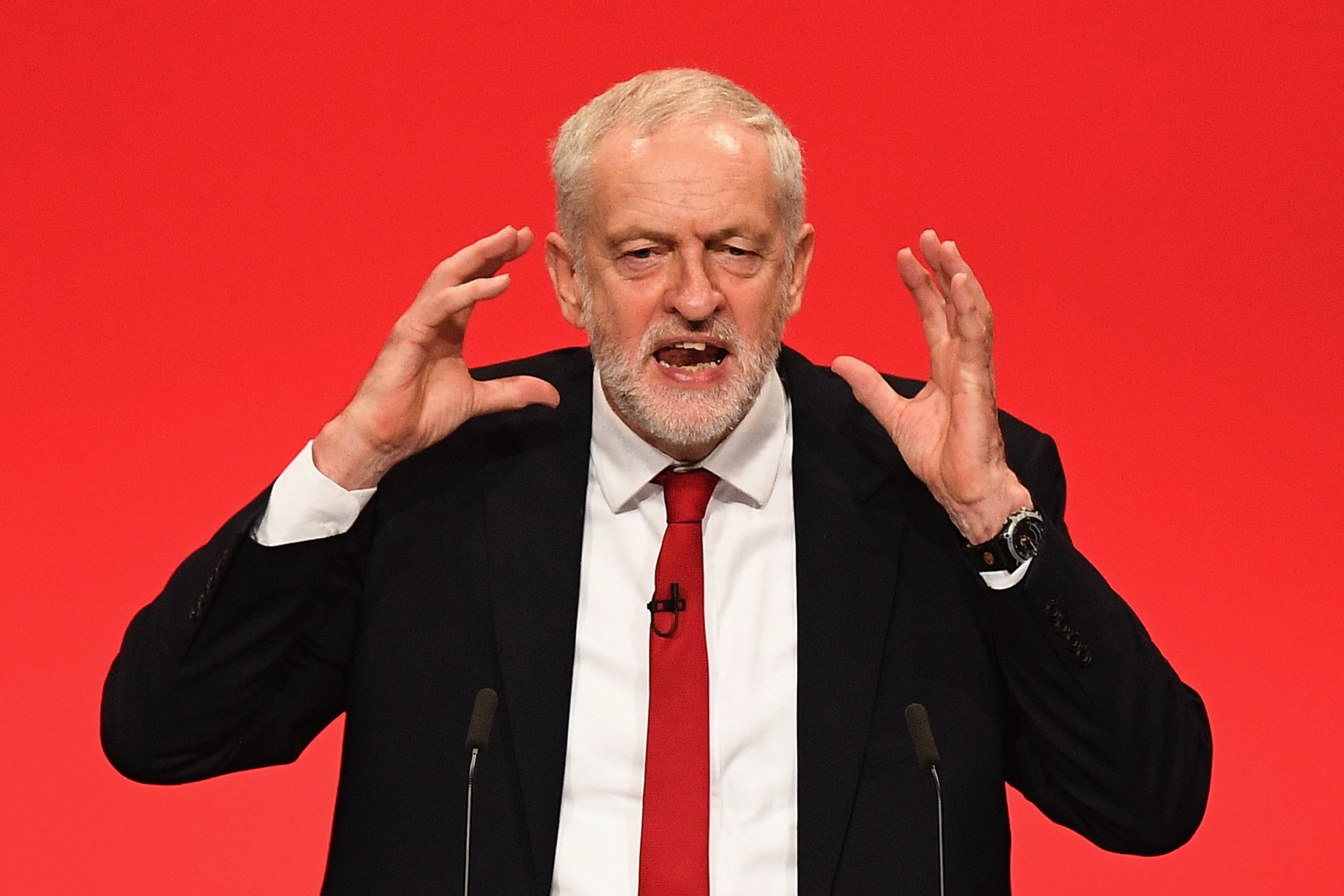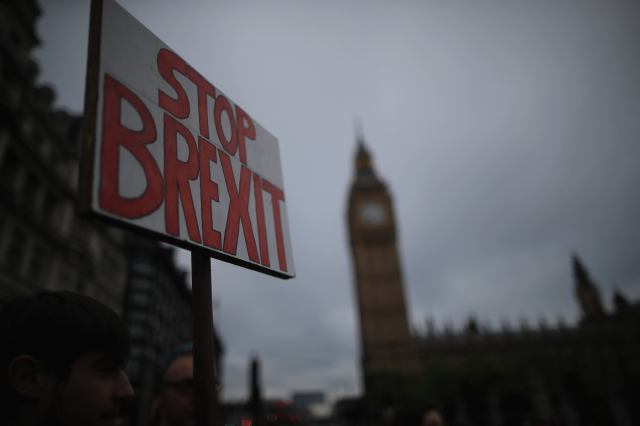Anti-Brexit feelings continue to run high. (Credit: Christopher Furlong/Getty)

Remainers are remoaners who are plotting to subvert the democratic will of the people.
Leavers, meanwhile, are xenophobes wanting to turn their back on the world.
Tories are “scum” who hate the poor.
And Corbynites? They love terrorists while hating Britain.
Robust political debate is right, proper and healthy; but we’ve crossed a line in the past two years and arrived at a terrible place.
We used to look across the Atlantic aghast. But, as the Brexit fallout has shown, we can put as much hype into hyper-partisan as the Americans. Far from settling the debate on Europe, the 2016 referendum has only intensified it – as some of the heated reaction to today’s news from Labour on the customs union proves.
The same can be said for the way Corbynites champion their hero’s cause – and the way the anti-Corbynites opponents hit back (“hit” being a better description than argue).
The way we’re also importing American-style “culture wars” and the language deployed to fight them is also striking. Take transgenderism. Even mild scepticism about the agenda gets people labelled as transphobes.
This wasn’t always been the British way. Over the past two centuries we’ve been one of the world’s best governed and most stable countries. This stability owes much to a preference for incremental implementation. Labour governments with big majorities never imposed hard-left socialism, nor sought to abolish the Lords, nor the monarchy, however much their ideological instincts impelled them to do so. Similarly, Conservative governments, however big their concerns about the ballooning welfare state, never really took the axe to it.

Both parties recognised that Britain is country founded on compromise and consensus, and that maintaining “one nation” – Disraeli’s famous expression – is more important than “winning”. To put it another way, this is not a country where the 52 ruthlessly impose on the 48, for that doesn’t make for a sustainable and stable society.
But on the other hand – and I write as an ardent Remainer – this is a country where the 48 does need to respect the majority of the 52. They won. Short of the most drastic change of public opinion (and that won’t happen by the way) we must leave the European Union. It breaks my heart to write those words, but that was the decision of 2016 and it was reinforced by the election of June 2017. And guess what? Many of the concerns about the EU that prompted Leavers’ votes were well-founded and legitimate and that must be accepted too.
So both sides can keep fighting if they wish. Those parts of the country that strongly wanted to stay, such as Scotland and London, will increasingly turn their back on those that made us leave. Moreover, if the mentality that we’ve seen since June 2016 continues, everything that goes wrong after Brexit will be blamed on that pivotal moment, to the detriment of identifying the real causes (the essential starting point from which you find solutions).
But there is an alternative. We can do the British thing. We can compromise. We can respect the majority while reflecting on and accommodating the concerns – and indeed the anguish – of the minority. I think Labour is starting to do that today.

Remainers simply have to accept that we must leave the European Union on the timetable set out, and attempts to subvert that should end. But the narrowness of the outcome, the divisiveness of the subject and the importance of finding national consensus means that we should leave in a compromising and incremental way. Just as the European integration Britain participated in after 1973 happened incrementally.
That doesn’t just mean a transition period. It probably means a relatively long transition period. And it might mean we don’t immediately seek a “permanent” deal at all. Instead we should treat leaving the EU as a journey which began in June 2016, takes an irreversible step in March 2019 and evolves thereafter.
What will that evolution look like? I don’t know – that’s for future parliaments to decide. Could that lead to a greater separation from the EU over time? Absolutely. In fact, probably. The new arrangements may frustrate, and Remainers will likely get used to life outside the EU. But by acting in the spirit of compromise, and incrementally, the 52 can take the 48 with them, and can remain one nation.
I have no doubt that Churchill, Atlee or Lloyd George would have found a compromise like this. And more latterly, yes, even Thatcher and Blair too. Both were far more pragmatic on Europe in office than their acolytes of today choose to remember.
And once we’ve relearnt incrementalism and compromise on Brexit, and adjusted our rhetoric accordingly, perhaps we can apply it to some other areas of political life. Thinking that more industries should be under state ownership does not make you a communist – any more than worrying about gay adoption’s potential impact on vulnerable kids makes you a homophobe.
But let’s start with Brexit. Let’s come together and find the grand national compromise that is consistent with our national character and our history. Or we can continue this process as it is, with Remainers ignoring the democratic decision and Leavers over-interpreting their narrow mandate. If we don’t change course, we will wake up to an irretrievably broken and divided country in 13 months. That terrifies me. Britain must learn to compromise again.










Join the discussion
Join like minded readers that support our journalism by becoming a paid subscriber
To join the discussion in the comments, become a paid subscriber.
Join like minded readers that support our journalism, read unlimited articles and enjoy other subscriber-only benefits.
Subscribe